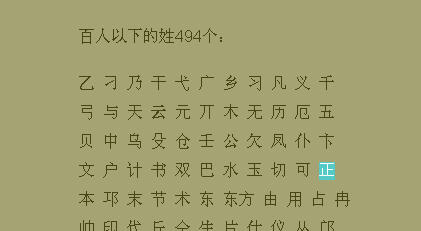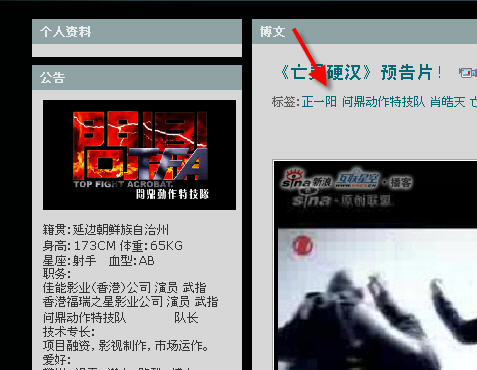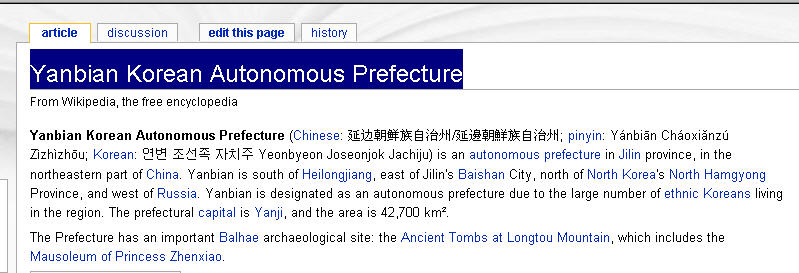
|
Subject:Zheng is not a Chinese surname?
Posted By: Bill Tue, Mar 10, 2009
Well, three "Bill"s finally met at the same thread.
I agreed with Bill H's interpretation of �� as the Chinese character Zheng. However, I disagreed with his statement that it was "not a Chinese surname."
I was amazed to learn from
http://en.wikipedia.org/wiki/List_of_ethnic_groups_in_China
that there are 56 officially recognized ethnic groups in China:
"The Han Chinese are the largest ethnic group, where some 91.59% of the population was classified as Han Chinese (~1.2 billion). Besides the majority Han Chinese, China recognizes 55 other "nationalities" or ethnic groups, numbering approximately 105 million persons, mostly concentrated in the northwest, north, northeast, south, and southwest but with some in central interior areas."
I actually believe the actual number of ethnic groups is much higher (if including unrecognized ethnic groups such those found in Taiwan,Hong Kong and Macau).
(*http://en.wikipedia.org/wiki/Ethnic_minorities_in_China
Recently I happened to talk to a Chinese lady working at Boston because of my job and learned that her Chinese Surname was Lan (pronunciated in Mandarin) and I absolutely could not figure out what Chinese character that would be until she told me it was �{, the Chinese character for the color BLUE. I still thought she was pulling my leg until she told me her family originated from the Manchurian ethnic group.
Therefore, while it is true that the most common Chinese surnames would be found among the most common One Hundred Chinese Surname (family name) List, I must caution everybody including myself in not assuming that just because we have never heard of a Chinese surname therefore it does not exist.
In this case, I found that the Chinese surname �� (Zheng) indeed exists:
http://blog.qz828.com/index.php/3477/viewspace-21647
According to this article, in ���� QuZhou (in �㽭ʡ Zhejiang province, China), one of the most historical city in China, there are 734 Chinese surnames (including 8 compound surnames), out of the list of 494 surnames with each surname that has less than 100 people is the surname Zheng:
��
(*Please see picture included in this message.)
For more info about QuZhou, please refer to:
http://www.xzqh.org/quhua/33zj/08quzhou.htm
*********************************************
From another link:
http://blog.sina.com.cn/zhengyiyang
I found the site of a Hong Kong martial arts actor whose name is
��һ�� (Zheng Yiyang).
While I do not know for sure if this is indeed his real name but his nationality is quite intriguing:
�ӱ߳����������� (Yanbian Korean Autonomous Prefecture)
Prior to this, I do not even know such region exists in China and was surprised to learn that there was a group of Chinese with Korean descents who live in the Jilin province of China:
http://en.wikipedia.org/wiki/Yanbian_Korean_Autonomous_Prefecture
http://www.yanbian.gov.cn/
Therefore, once again it seems �� was being adapted by some of them in using it as their family name.
Also, ���� Yue-Zheng (used to be a government official who was in charge of music)is a compound surname found in the top One Hundred Chinese Surname List.
Therefore, it seems the Chinese character
�� is indeed a Chinese surname and therefore there is a slight possibility that this piece may be manufactured by somebody with such a Chinese surname with either family origin from QuZhou or the Yanbian Korean Autonomous Prefecture.
It is possible that if more researches or studies can be done, we may pinpoint the exact origin of this elephant statue. It is very possible that these elephant statues are not really Chinese origin and in that regard the character Zheng may not really be Chinese but instead either Japanes or even Korean.
Well, it is fun for me to learn more about Zheng as a Chinese surname though. Thanks for sharing.
Bill
P.S. I was very surprised to find that this post would not allow me to post any Chinese characters while some times they were allowed. Therefore I am posting pictures of some of the Chinese characters here for your convenience.





|

